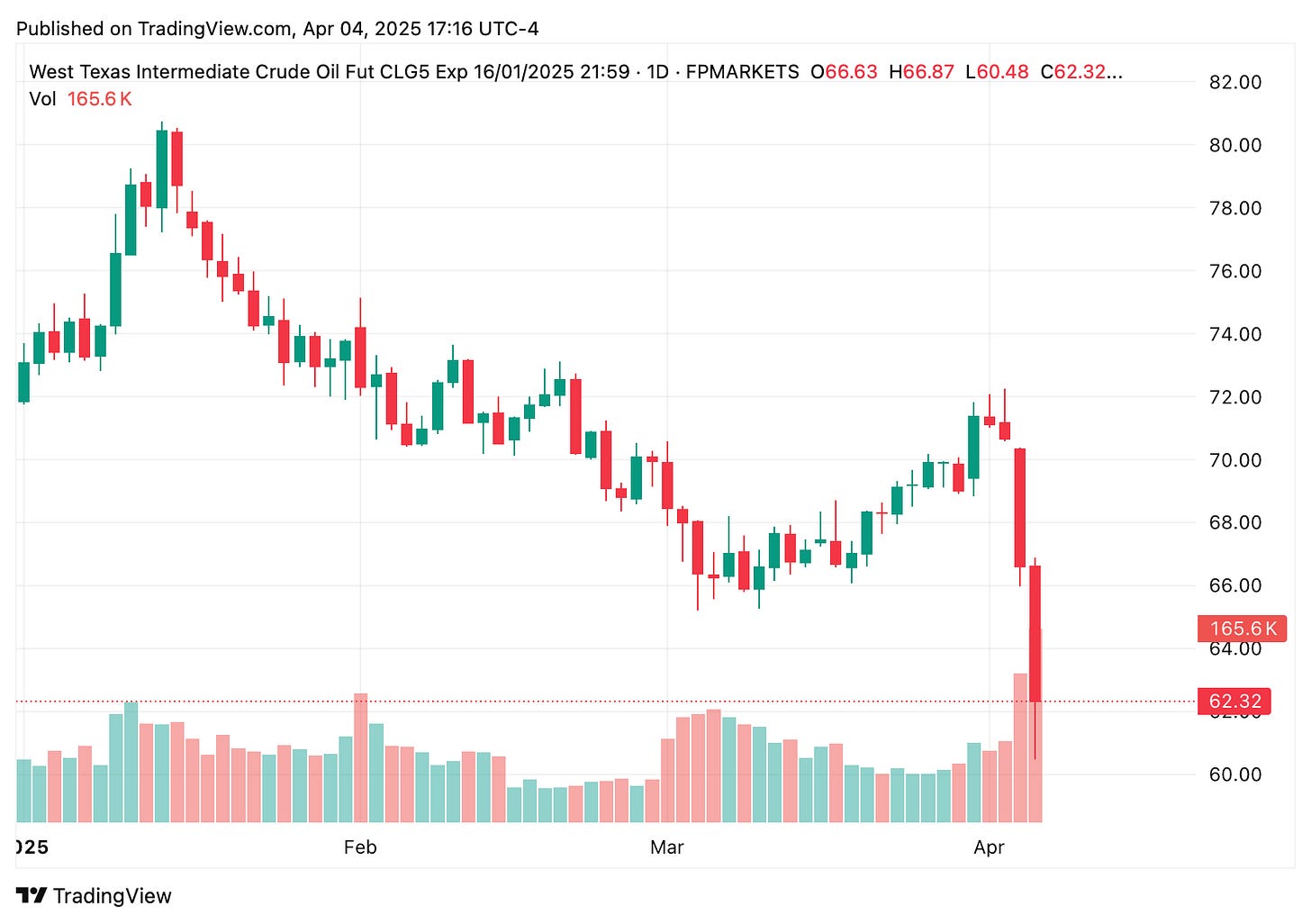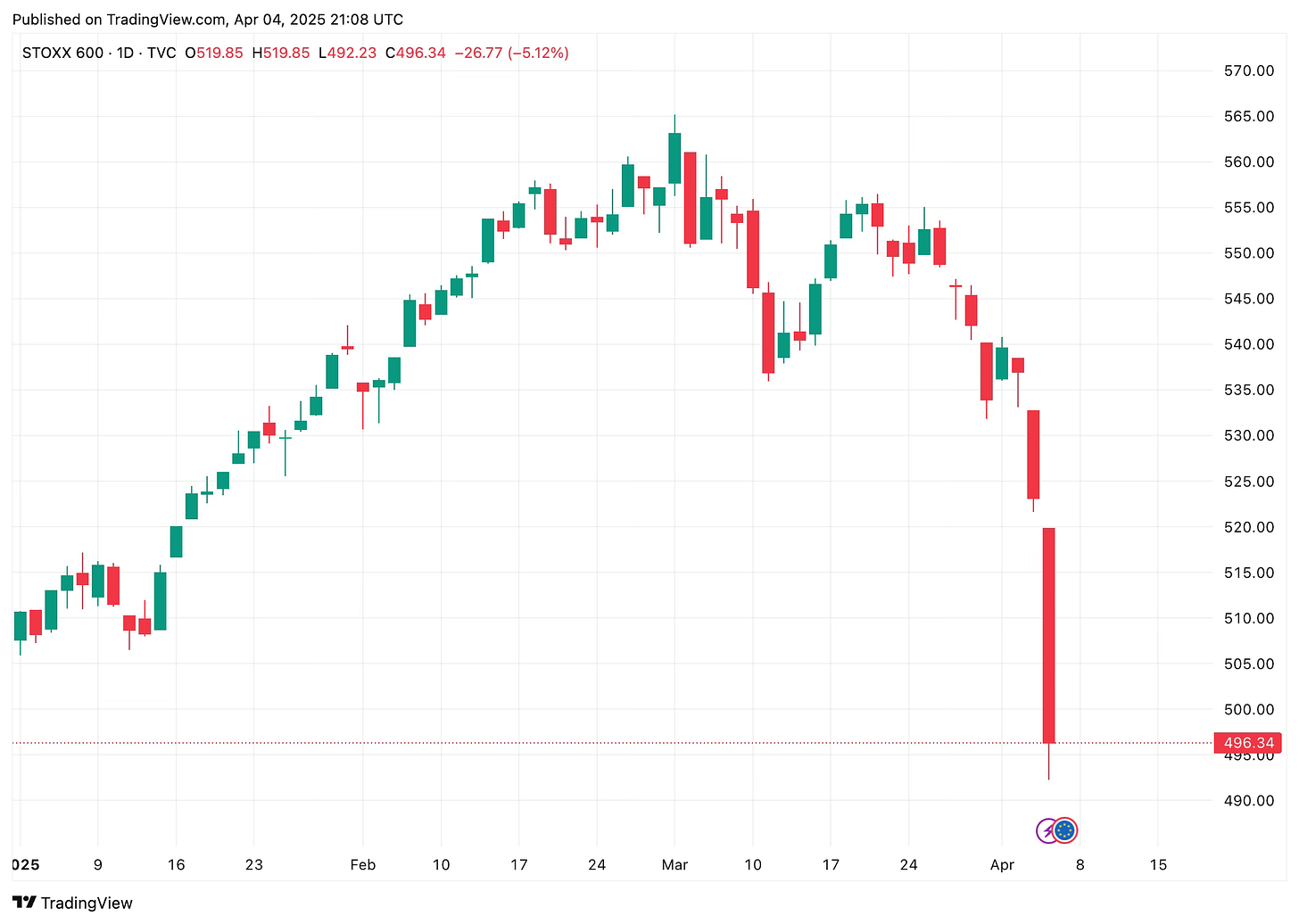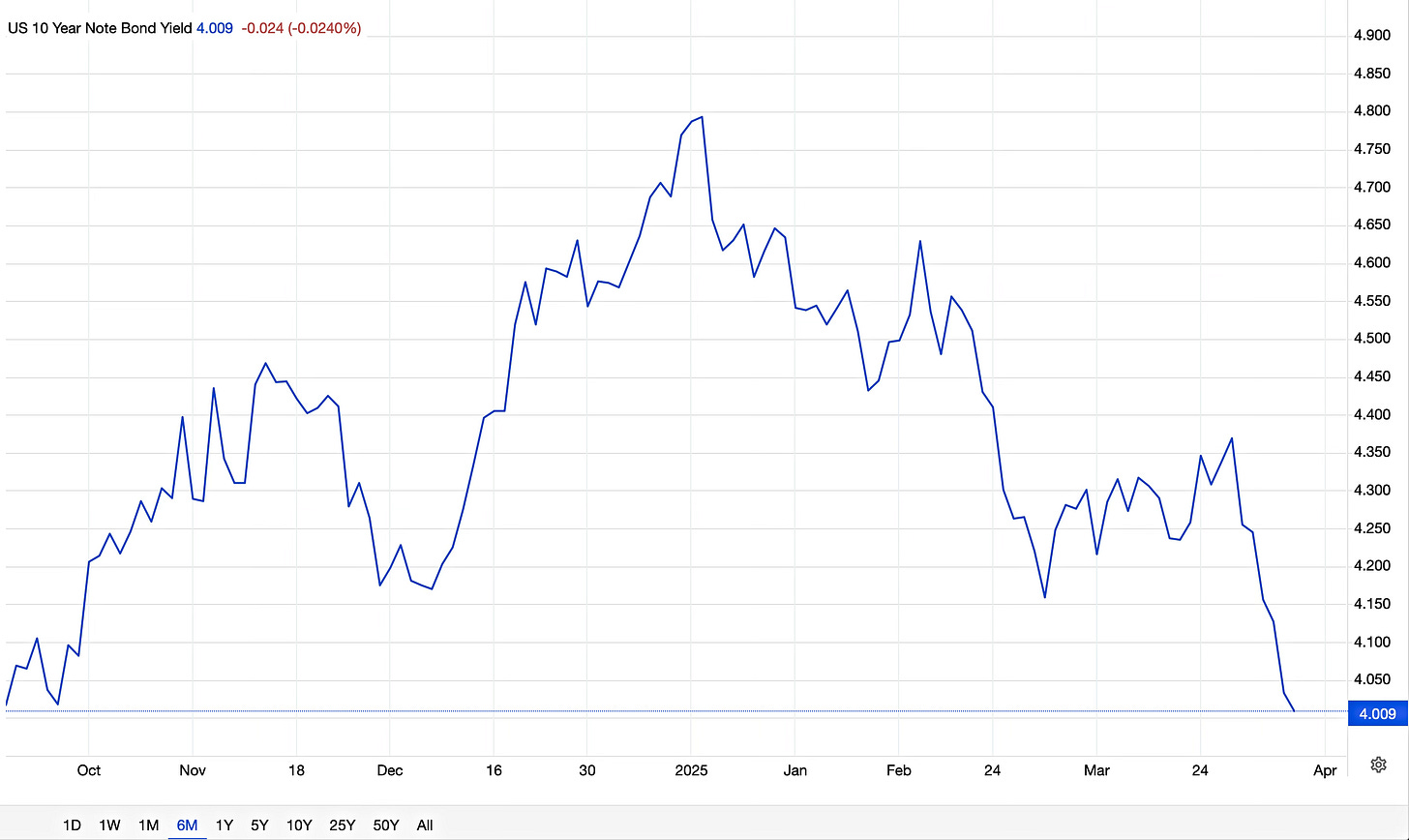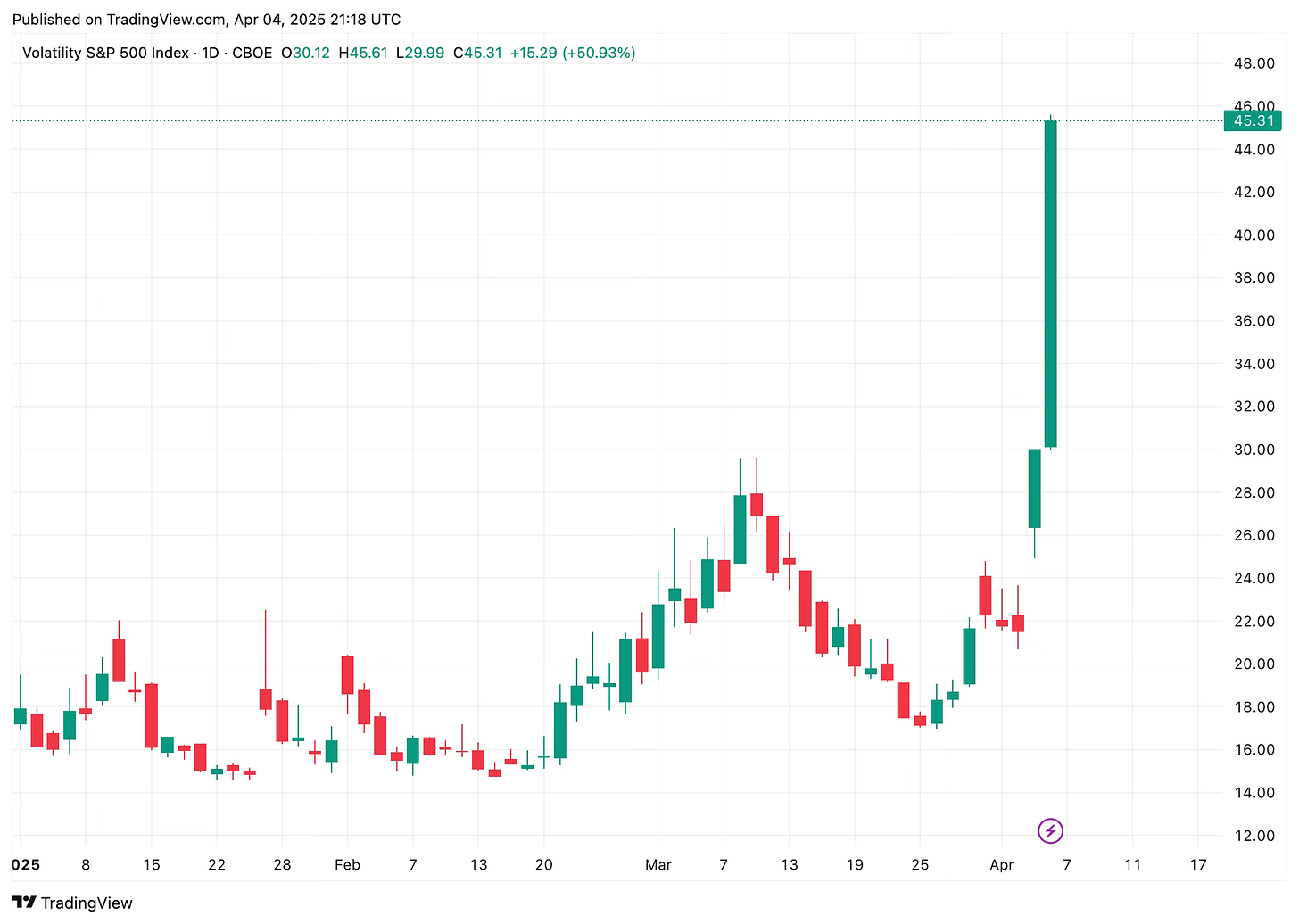So, what do y’all want to talk about ?
There is an elephant in the room isn’t it ? I’m going to explain the world in - as few words as possible
There is the macro-economic side of it and that tends to get theoretical, we will talk about that soon, but this is the finance side of it
Before I start, I’m going to use my platform to introduce you all to a brilliant economist. I know and recognize great economists when I read their work, and Oren Cass is definitely one. I saw him on Jon Stewart (here) and there are very few people in the country who can trade punches with Stewart and hold their ground. I have a diverse array of audience, and if you are coastal, you might not agree with Oren, but be open to his school of thought and see if it makes sense
Just read him for a few weeks and see how you feel. It is my very humble attempt to unlock the doors to the echo chamber we all find ourselves in, from time to time
Without further ado - Understanding America
Let’s get to it
DJT announced reciprocal tariffs in the Rose Garden on Wednesday evening, and China responded in kind on Friday
Corporate earnings and profits are one of the strongest drivers for stock prices. When there is a global trade war in the form of tariffs, investors get nervous about the uncertainty in corporate earnings, and they sell - and keep selling
… and keep selling, ‘til kingdom come
That’s how we ended up losing 2,200 points in total this week
NASDAQ

S&P 500

Stoxx Europe 600
Japan - Nikkei 225

When investors sell stocks, they tend to flock towards fixed income assets such as United States treasury bonds. It has less of an upside but it is less risky. Say, you buy a bond at $ 80, and it pays a total of $ 100 when it matures, your yield is effectively 25% (20/80)
As with anything in life, as more people buy it (as with bonds in this case), the price increases. So, now you purchase the bond at $ 90, but it still only pays $ 100. So, the yield is now 11% (10/90)
That’s the linkage : stock selloffs leads to decrease in bond yield
US 10Y Treasury Yield
There is a genuine fear of recession around the world. That fear means investors expect less business operations and by extension, less demand for oil. Less demand for the commodity essentially means, investors sell futures oil contracts they own currently. As with anything, when more people sell it, the price of it decreases
OPEC announced increasing supply before the announcement in the Rose Garden and that also exerts downward pressure in price
Brent Crude is a global benchmark, and West Texas Intermediate is the United States benchmark


A few weeks ago we talked about the fact that when the world is nervous, the VIX throws a tantrum
Well … it did
The long term average of VIX is 20, it is north of 44 as of Friday evening
That’s about it
The world is in fear and panic as of now, and if Wall Street panics, it would take a grand total of half a day for that panic to reach the shores of London, Singapore or Tokyo … sometimes sooner
When they say a United States President can move markets, they aren’t kidding








